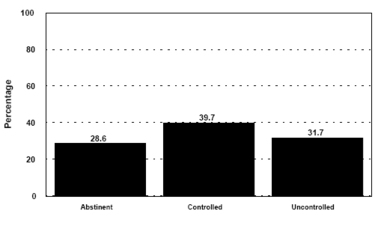The WAGER, Vol. 1(17) – Treating pathological gambling: Abstinence versus controlled gambling
The idea of controlled use for those who have a problem with gambling or with substances is a controversial one in the addictions field. Most pathological gambling treatment programs emphasize abstinence as the only measure of success. A follow-up study of 63 pathological gamblers who had completed a one-week behavioral treatment program (from 2 to 9 years earlier) examined psychopathology as well as psychological indices of social functioning. Eighteen respondents classified themselves as abstinent (no episodes of gambling in the month immediately preceding interview and for the predominant portion of the post-treatment period), 25 as controlled (gambling in the absence of both a subjective sense of impaired control and adverse financial consequences), and 20 as uncontrolled gamblers. These self-classifications were confirmed by a contact person. Respondents reporting controlled as well as abstinent gambling showed comparable improvements in social and financial functioning. In addition, their psychopathology levels were lower than those reporting uncontrolled gambling. Although the authors state that it is prudent to encourage abstinence as the preferred treatment goal, it is important to recognize that some problem gamblers may be able to control their gambling following treatment. More research is needed to determine if it is possible to predict who is able to gamble in a controlled manner without adverse consequences. Currently, clinicians cannot predict this accurately. Therefore controlled gambling represents a risky treatment strategy.
Source: Blaszczynski, A., McConaghy, N., & Frankova, A. (1991). Control versus abstinence in the treatment of pathological gambling: A two to nine year follow-up. British Journal of Addiction, 86, 299-306.
This public education project is funded, in part, by The Andrews Foundation and the Massachusetts Department of Public Health.
This fax may be copied without permission. Please cite The WAGER as the source.
For more information contact the Massachusetts Council on Compulsive Gambling, 190 High Street, Suite 6, Boston, MA 02110.
